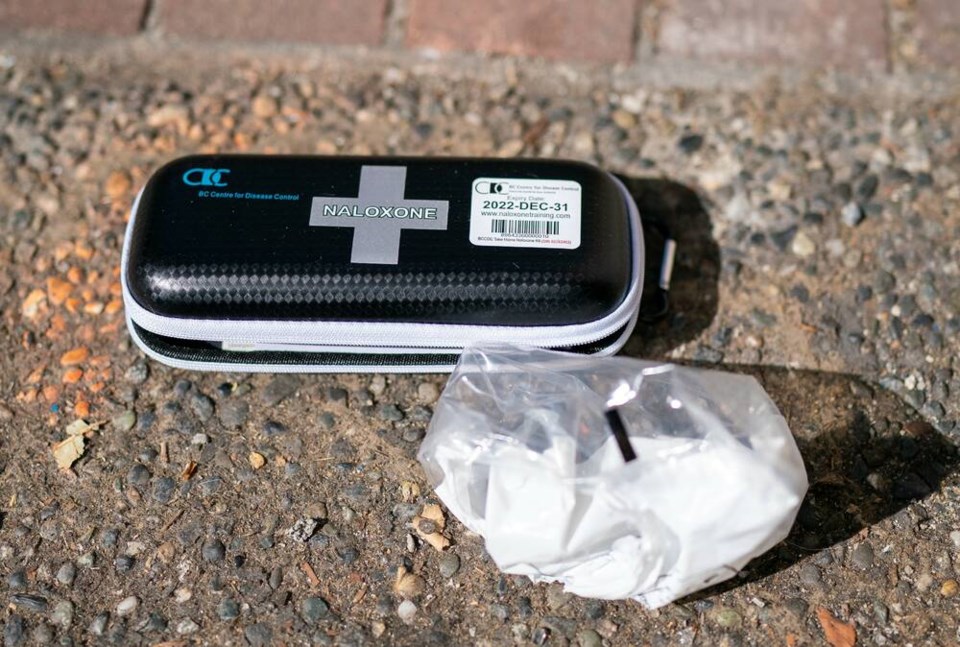B.C. officials are more openly acknowledging the policy failures that are reflected in the drug overdose statistics.
So a new approach is being recommended that could involve more unspecified provincial emergency powers and legislative changes.
The numbers speak for themselves. The death rate has climbed astronomically even after a public health emergency was declared to tackle the crisis. But the government’s stance over the years was to side-step around why deaths were going up. There was emphasis on optimistic expectations that various new ideas might work.
The fact nothing was working was downplayed.
A comprehensive death review report released Wednesday was more forthright. Just the fact it was conducted was telling.
It’s the second one in four years to look at overdose deaths. The first one was struck after 1,854 people died in less than two years due to illicit toxic drugs.
It made more than a dozen recommendations to government to curb the fatalities.
Result? The death toll climbed to more than 8,700 in the following years, a number that would have been inconceivable in the early going.
The latest death review admits the obvious. “It has become clear that the current response to this emergency is not working. … Although a number of provincial initiatives have been undertaken in an attempt to address the drug toxicity crisis, these initiatives have not been sufficient to stop the rising death toll.”
That death toll is unlikely to drop until the prohibition framework is abandoned and more support and harm reduction services are created.
Michael Egilson of the Office of the Chief Coroner chaired both review panels.
He said Wednesday: “Twice as many people are now dying as when the public health emergency was first declared in 2016.
“A new approach is required.”
He said the government’s interventions in the crisis have not been sufficient to reduce the deaths. “One of the major thrusts of the panel’s recommendations, it’s recognizing that if what we’re currently doing isn’t working, we may need to be looking differently.”
The latest panel puts more emphasis on safe supply, meaning that subject to federal approval, illicit drugs would be decriminalized, regulated for safety and made more easily available, through prescriptions or otherwise.
“As the scale of current initiatives has been unsuccessful in reducing the number of deaths … provincial emergency powers and further legislative tools may be required to ensure immediate actions commensurate with the magnitude of the crisis,” he said.
He cited how emergency powers have been used during the pandemic, and were applied during last year’s flooding. Rule changes about access to funding were also given as an example.
“If we use some of those same levers, emergency powers … I do believe that this could really make a difference.”
Egilson said the government did respond to the first death-review panel’s recommendations four years ago, but there was more emphasis on the emergency response than on building an evidence-based system of care.
The new game plan outlined in the latest report involves acting to make the drug supply safer through a provincial framework for distribution that includes both medical and non-medical models.
Barriers to using it would be lowered to make many at-risk people eligible.
Safer alternatives would be made more accessible and testing of drug toxicity would be available province-wide.
It urges the federal health minister to approve B.C.’s request to decriminalize personal possession of illicit drugs by April 11. The report also urges government to have a comprehensive plan ready by then with targets and deadlines to reduce the death toll.
It calls for investments in new training programs for people treating drug-use disorders.
Mental Health and Addictions Minister Sheila Malcolmson said the government’s work has been “overcome” by the big increase in toxicity of illicit drugs.
The monthly count of overdose deaths declined slightly in late 2019 for the first time in four years. But the toxicity of drugs increased at the start of the pandemic with terrible effects, she said.



